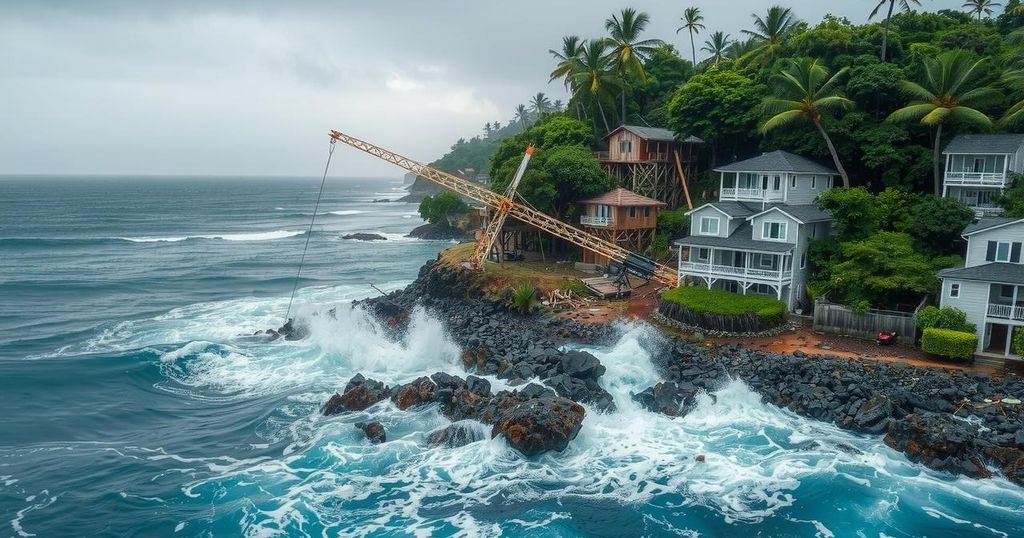Cyclone Chido’s Devastation: Mayotte Suffers Severe Humanitarian Crisis

Cyclone Chido has devastated Mayotte, possibly killing nearly a thousand people and destroying vital infrastructure. Emergency response efforts are in place, with UNICEF highlighting urgent humanitarian needs. The storm underscores the challenges of climate change, as global warming is expected to increase cyclone intensity globally, particularly affecting already vulnerable nations in southern Africa.
Cyclone Chido, the most powerful storm to strike the French island of Mayotte in over 90 years, has led to devastating human losses and significant destruction. Estimates suggest that the tragedy has claimed nearly a thousand lives as reported by Mayotte’s top officials. This natural disaster, also impacting nearby regions such as Comoros and Madagascar, has exacerbated the longstanding issues the island faces, including drought, underinvestment, and violence, pushing its already vulnerable population towards a deeper humanitarian crisis.
In the aftermath of the cyclone, humanitarian efforts are underway, with UNICEF stressing the urgent need for additional support as many essential services have been disrupted across the region. The French interior ministry has mobilized over 1,600 police and rescue personnel to assist in the aftermath, while essential supplies are being airlifted and transported by military vessels. Mayotte’s Prefect, Francois-Xavier Bieuville, indicated that it remains challenging to obtain an exact count of casualties due to the chaos caused by the cyclone’s fury.
Understanding cyclones is essential in the context of this disaster. Classified as powerful tropical cyclones, these storms are named differently based on their geographic occurrence. Cyclones develop when warm ocean temperatures lead to the formation of thunderstorms, which can evolve into a spinning system, drawing energy from the ocean until they land.
The cyclone season from December to March has been particularly ruthless in southern Africa, with previous storms like Cyclone Idai and Cyclone Freddy inflicting thousands of casualties across the region. As climate change continues to affect global weather patterns, the Intergovernmental Panel on Climate Change warns that while the frequency of cyclones may remain unchanged, their intensity, particularly in terms of rainfall and wind speed, is expected to increase. This poses significant risks for poorer nations like those in southern Africa, highlighting the urgency for global support in addressing both the immediate and long-lasting effects of climate change.
Cyclone Chido recently struck Mayotte, a French territory critically located in the Indian Ocean and remaining economically challenged. With a population exceeding 300,000, the island has been plagued by drought, violence, and inadequate investments for years. As part of the cyclone season that typically spans from December to March, this storm serves as a stark reminder of the increasing frequency and intensity of severe weather events potentially linked to global warming.
Cyclone Chido has marked a catastrophic event in Mayotte’s history, resulting in potentially thousands of fatalities and widespread destruction of infrastructure. The ongoing humanitarian response underscores the dire need for enhanced support for the affected population. Experts stress the implications of climate change on the severity of such storms, reinforcing the importance of international aid for vulnerable regions facing the aftermath of natural disasters.
Original Source: news.sky.com







